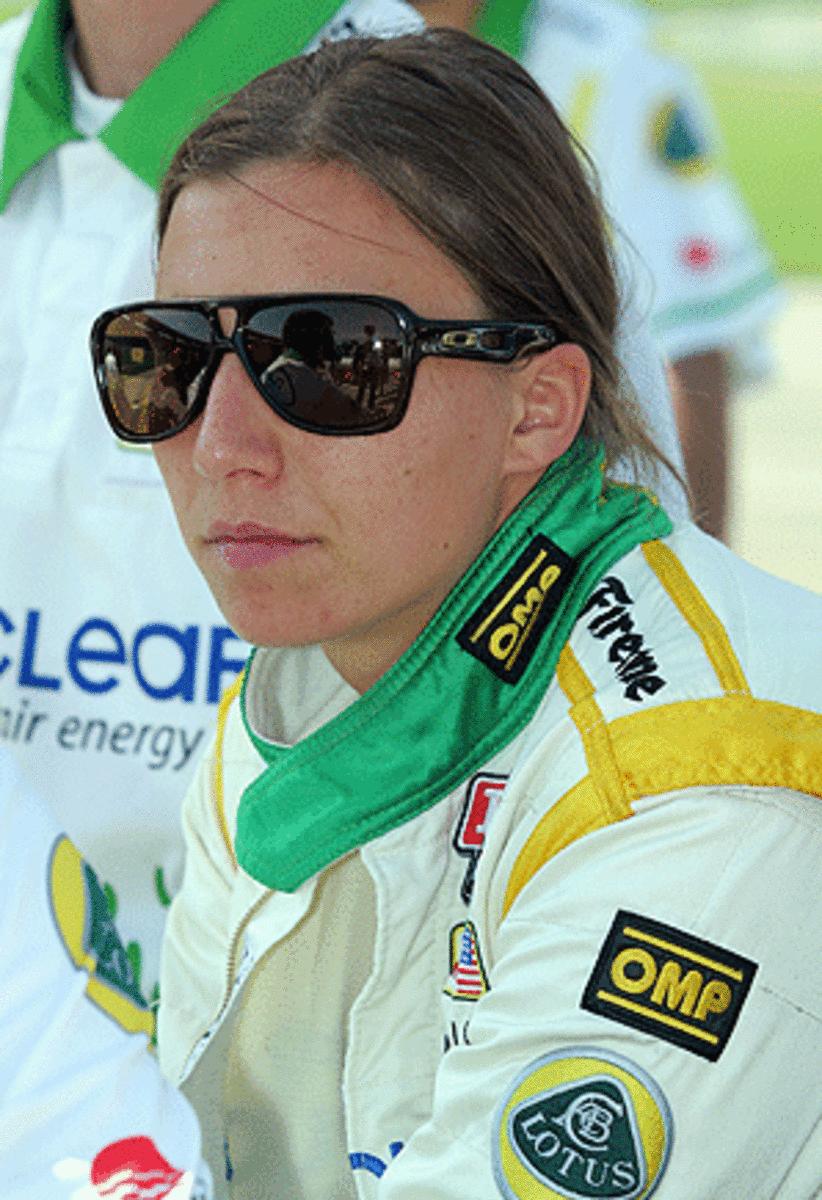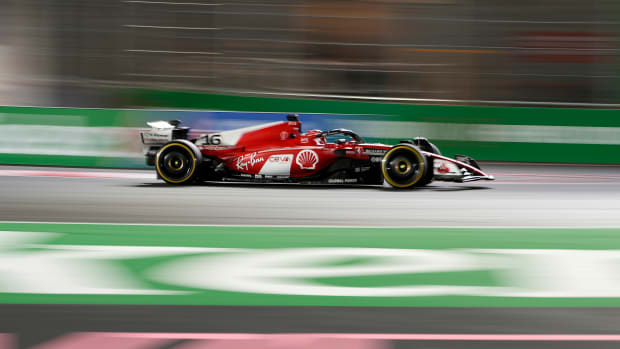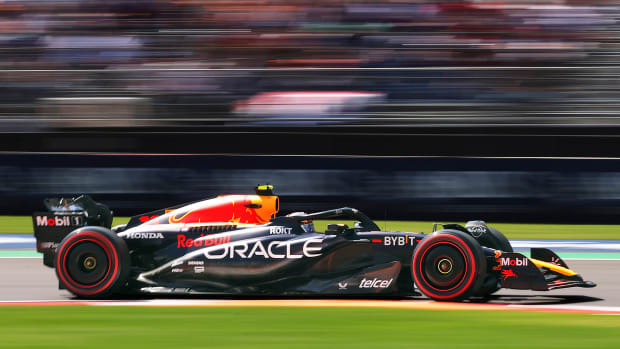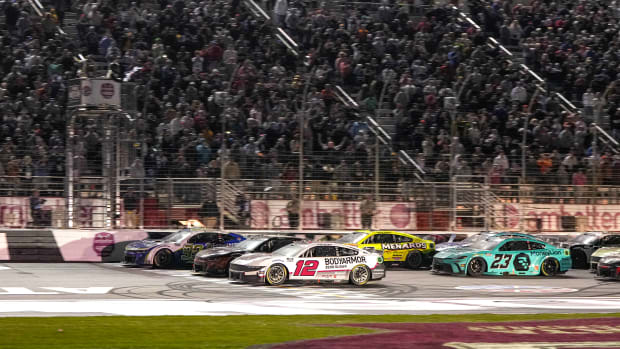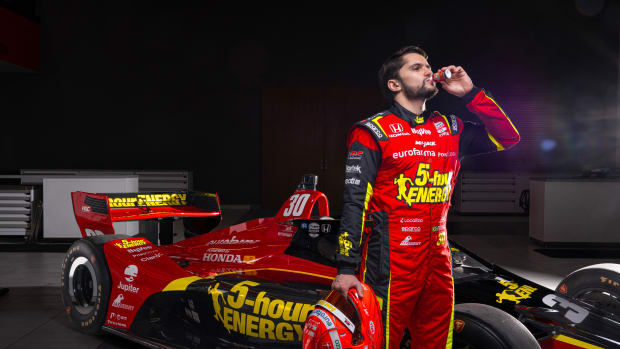Halfway through the season, IndyCar still experiencing changes
IndyCar is a relatively traditional sport -- the unexpected comes during the races, not off the track. This year, however, IndyCar has instituted several significant changes, impacting the sport for drivers, teams and fans.
The 2012 season marks the first year since 2006 that IndyCar offered drivers the option to select between three different engines: Honda, Chevy and Lotus. While Honda previously had exclusive rights to all the engines, Chevy has been quick to step up as a viable competitor. Left in the dust is Lotus, a small manufacturer that has lost all but one of its cars.
This being the first year for Lotus in IndyCar, Vincent Pereme, Lotus' engine manager, says the manufacturer needed "a learning year." After falling behind the competitors in a power deficit over 2.5 percent, IndyCar approved Lotus' request to make engine modifications. The manufacturer will be implementing an update to the engine before every race, starting in Toronto Sunday. The improvements will be slow this season, but Pereme expressed confidence in the engine's performance.
"I expect this weekend will be good for the team. We will not be in pole position, that's for sure; we have a big gap to close. But we are starting now to put in improvements race by race."
Lotus' driver Simona de Silvestro will not be the only one with new technology this weekend. Push-to-pass, introduced to IndyCar in 2009, will make a brief return to the series for the next five road/street races starting with Toronto.
Push-to-pass provides a turbocharger boost and additional RPMs with the press of a button, giving the driver an extra kick for a pre-determined amount of time to complete a pass. Presently, the only driver to test the new assist is de Silvestro, who had the opportunity to try it on Monday during test runs for the new Lotus engine. According to Pereme, the Push-to-pass software failed.
"We tried to test [Push-to-pass] on Monday because we had the chance to be on the track and we had the software to do it. But something went wrong with the software and it didn't work; we couldn't try it."
Reinstating Push-to-pass is meant to garner some interest in the remaining IndyCar races. The IZOD IndyCar series made a similar move during the Iowa Corn Indy, when the series introduced three qualifying heat races to spice up the regular -- and unpopular -- qualifying laps. IndyCar's efforts to gain viewership worked in that event -- ABC ratings reportedly went up 14 percent from the 2011 Iowa race.
What It Means
With new engines, Push-to-pass reinstated, and one less race in the series, IndyCar teams increasingly need to rely on their adaptability. Young drivers like James Hinchcliffe (5th in points) and Simon Pagenaud (6th) have been doing well this season, possibly in part because they aren't as affected by the new changes in the way veterans might be.
Every event counts a little more now IndyCar has opted to not replace the China race, originally scheduled for Aug. 10. IndyCar has not had a 15-race season since 2002; more specifically, every season since 2007 has featured 17 races. The drop to 15 this year will affect both new drivers and veterans, who are used to the 17-race series. Dropping to 16 races already raised the stakes of IndyCar this year. Now, with only 15 races in the season, drivers will have to perform well consistently to be in the running for the championship.
Toronto could be the most important race this season. Drivers will have minimal experience with Push-to-pass -- those that can use the assist effectively in this race will have an upper hand. After Toronto, as Pereme stated, "The drivers will start to copy each other." The most adaptable drivers and teams will have a chance to use Push-to-pass to get an extra edge on the competition, while drivers who struggle with the Push-to-pass strategy will have to wait until Edmonton to figure out the best techniques.
Looking Ahead
With 2012 barely halfway through, changes have already abounded to alter the IndyCar game this year. Looking ahead, it's certain that next season will bring some more drama, too.
To start, rumors are flying about another potential change -- Michael Andretti is looking to start a NASCAR team. Bruce Martin reported that it's possible for Andretti to take over Penske's Racing's spot with Dodge next season. While Andretti hasn't committed to anything, he did make it clear that "his primary focus would continue to be on open wheels." Still, if Andretti adds NASCAR to his portfolio, there's no doubt it would affect his IndyCar team, one of the best in the league. NASCAR teams require a much larger budget and team; most importantly, it requires much more attention.
There's also the question of Lotus' future. Six years of exclusively Honda engines gave Honda the upper hand this season, coming in as the veteran engine supplier. However, both Honda and Chevy are quietly making plans to expand in 2013, in the event Lotus continues to struggle. The two manufacturers will either be adding more cars or requiring single cars to join teams. If the latter is the case, single-car teams like Simon Pagenaud or Mike Conway will have to look for teammates.
Because Lotus has been adamant that it will return in 2013, drivers will likely have to choose between adopting the small manufacturer or team up to get a Honda or Chevy engine for the season. Still, with Lotus slowly making changes this season, there's a chance the third manufacturer will make a comeback in 2013.
"I think we have to be realistic, we are far behind," Pereme said. "We knew this year would be slow and it would be a year to learn IndyCar. We have improvement coming every race from now on; we will have something new for [Toronto] and we hope to improve for every race. But we will not catch up this season, that's for sure."
But looking to 2013, Pereme maintains Lotus' commitment to IndyCar. "The big goal for next season is to arrive at the first race with an engine that will be at the same level as the other manufacturers. We strongly believe we are going to do it."
